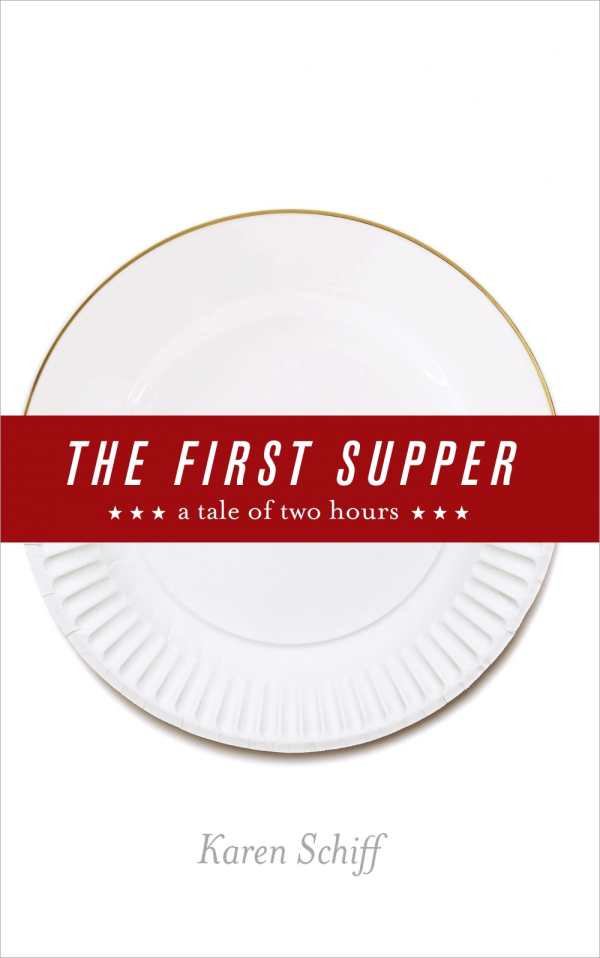The First Supper
A Tale of Two Hours
This enjoyable tongue-in-cheek satire ingeniously threads hot-button issues into a farcical plot.
Karen Schiff’s novelization of her play, The First Supper, explores divisions among Republicans with tongue-in-cheek vigor. When “Amazing” Amanda Worthington—the eighteen-year-old daughter of wealthy parents—announces her pregnancy and upcoming marriage to a working-class, evangelical Christian athlete, Brian Grace, their families struggle over their differences despite the idea that sharing the same political party should provide common ground. This entertaining portrayal of crisis is a roller coaster held up by the timeless theme of parents wishing the best for their children.
The book reveals its origins as a play through careful attention to furnishings, sounds, scene details, and memorable props that reappear at key moments, as well as the focused, two-hour time line.
The characters are painted in recognizable strokes, such as Amanda’s mother, a fashion-conscious, Botox-indulging, Bryn Mawr graduate; Brian’s mother, a former homeschooling, part-time Walmart employee; and Amanda’s father, who believes that wealth can be thrown at any problem to make it vanish. The knowing use of stereotypes makes characters appear simple, but depth in their portrayal matters less than the beliefs they represent. As such, little change is evident. Neither set of parents is enthused or particularly enlightened by the other at the novel’s conclusion. It’s a realistic outcome, considering the brevity of their encounter, yet the choice to leave them in a tentative position may seem less satisfying.
The more noteworthy feature is the plot, which complicates the familiar meet-the-parents scenario by cleverly threading hot-button issues at nearly every turn. Abortion, gun control, tax cuts, taste in art, and homosexuality all crop up in barbed exchanges between the soon-to-be in-laws. Situational humor fuels most of the work; glimpses at the characters’ thoughts offer a richer type of humor. When the writing turns serious, including the moment when Amanda’s mother reminds her to honor her mother and father, the remark stands out all the more for its fleetingness.
Amid the confusion of worlds clashing—one family being more accustomed to dining on “venison” and the other on “meatloaf”—it is a secondary character who steals the thunder. Eddie Kamara, the Worthington’s executive chef from Sierra Leone, is a delightfully imagined, put-upon figure who must deal with getting dinner to the table while witnessing the drama. Portrayed as an artist and the youngest James Beard Award winner, Eddie serves as welcome comic relief. He is also used to temporarily bridge the divide when Brian’s gun-toting father discovers Eddie’s dream to cook a Tuscan boar dish.
Fans of contemporary politics who don’t mind jabs at religion will savor the absurdities. With its clear, unapologetic enjoyment in conversational awkwardness, this story of families greeting an unexpected surprise is a quirky farce.
Reviewed by
Karen Rigby
Disclosure: This article is not an endorsement, but a review. The publisher of this book provided free copies of the book and paid a small fee to have their book reviewed by a professional reviewer. Foreword Reviews and Clarion Reviews make no guarantee that the publisher will receive a positive review. Foreword Magazine, Inc. is disclosing this in accordance with the Federal Trade Commission’s 16 CFR, Part 255.

